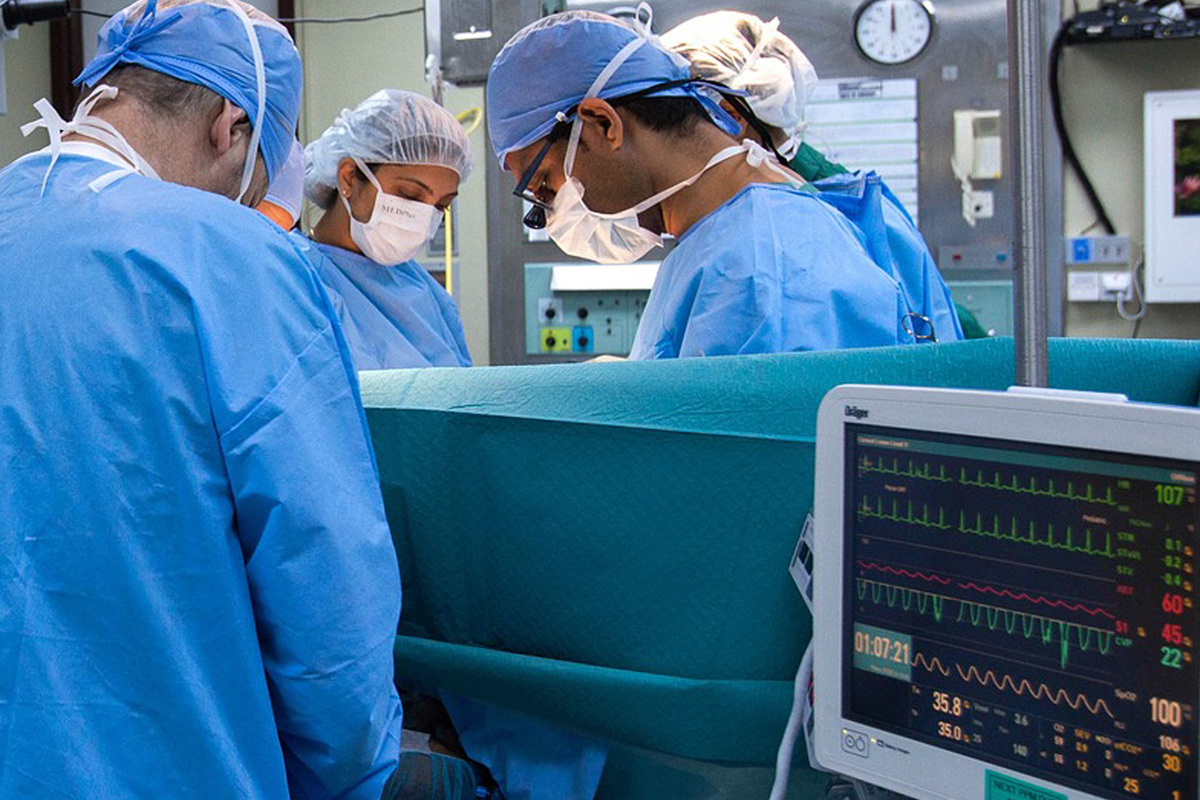Successful transplantation of a genetically modified pig kidney into a human being called a medical breakthrough
[ad_1]

A US patient has been transplanted with a modified pig kidney, marking a significant medical milestone. Surgeons at Massachusetts General Hospital called the transplant a success and the patient is expected to be released soon.
Surgeons at Massachusetts General Hospital have transplanted a kidney from a genetically modified pig into a human recipient, marking a medical milestone that could help thousands suffering from kidney failure.
According to The Guardian, doctors at the Massachusetts General Transplant Center in Boston performed a four-hour operation using a genetically altered pig kidney, the hospital said.
Surgeons overseeing the procedure called the transplant “successful” and the patient is expected to be discharged soon.
“The success of this transplant is the culmination of the efforts of thousands of scientists and physicians over several decades,” said Dr. Tatsuo Kawa, director of the Legorreta Clinical Transplant Tolerance Center at Massachusetts General Hospital (MGH).
“We hope that this approach to transplantation will be a lifeline for millions of patients around the world suffering from kidney failure,” he added.
For more than five years, scientists from MGH and the biotech company eGenesis have collaborated to create a genetically edited kidney for transplantation.
The researchers removed harmful pig genes from the animal’s kidney and inactivated retroviruses in the donor pig that could potentially cause infections in humans. The scientists also added human genes to the kidney to make it more compatible with any human recipients.
According to The Guardian, on March 16, Richard Sleiman received a genetically modified kidney. Sleiman, 62, was reported to be suffering from end-stage renal failure, where the kidneys stop functioning.
When his kidneys first began to fail, he was placed on dialysis for seven years, then received a kidney transplant in 2018, but was forced to resume dialysis in May 2023 after the donor kidney stopped functioning. He experienced complications from dialysis, including several blood clots that required hospitalization and surgery.
Sleiman said MGH doctors carefully explained the procedure to him, an operation that he felt was bigger than just himself.
“I saw this not only as a way to help me, but also as a way to give hope to the thousands of people who need a transplant to survive,” he said in a statement.
The patient is recovering well, MGH doctors told the New York Times, saying the transplanted kidney was producing urine and Sleiman was able to stop dialysis and walk around the hospital.
“He looks independent. This is remarkable,” said Dr. Winfred Williams of MGH.
Animal-to-human organ transplantation, also known as xenotransplantation, could offer hope to thousands of people still waiting for organ donation, The Guardian notes. More than 100,000 people in the United States are waiting for an organ transplant, according to the United Network for Organ Sharing (UNOS), which oversees the organ transplant system in the United States. Kidneys are the most sought after organ for transplantation.
Previous xenotransplantations have been associated with risks. Two patients with advanced disease underwent porcine heart transplants in 2022 and 2023, but both died shortly after the procedures.
[ad_2]
Source link








